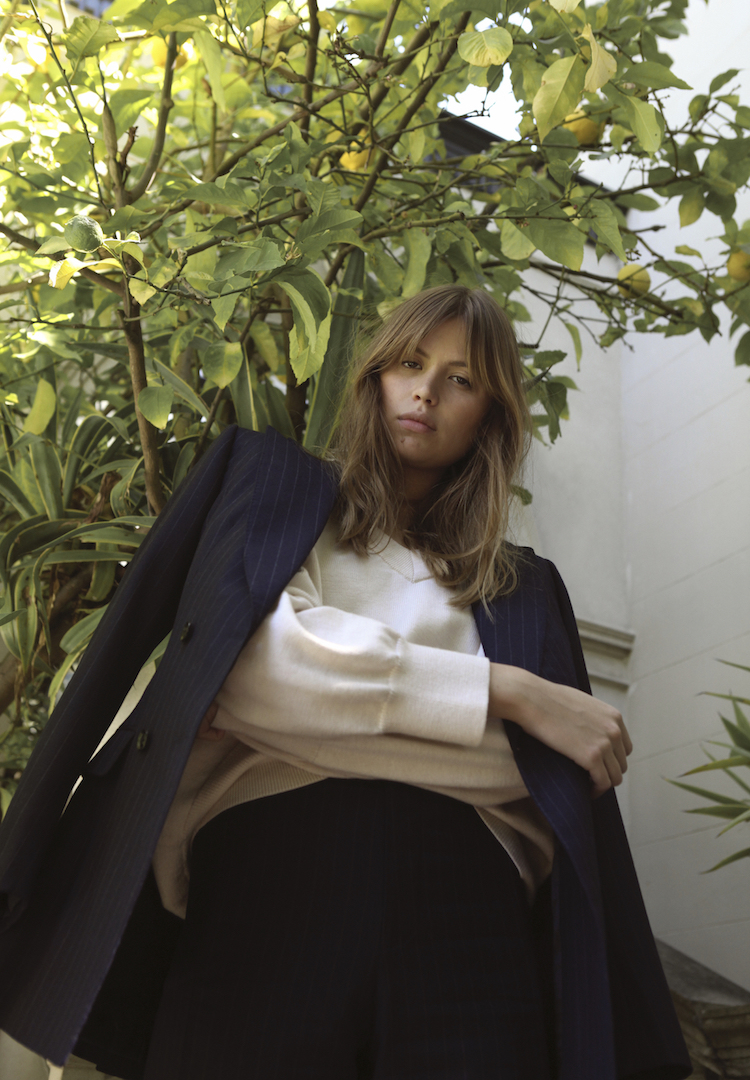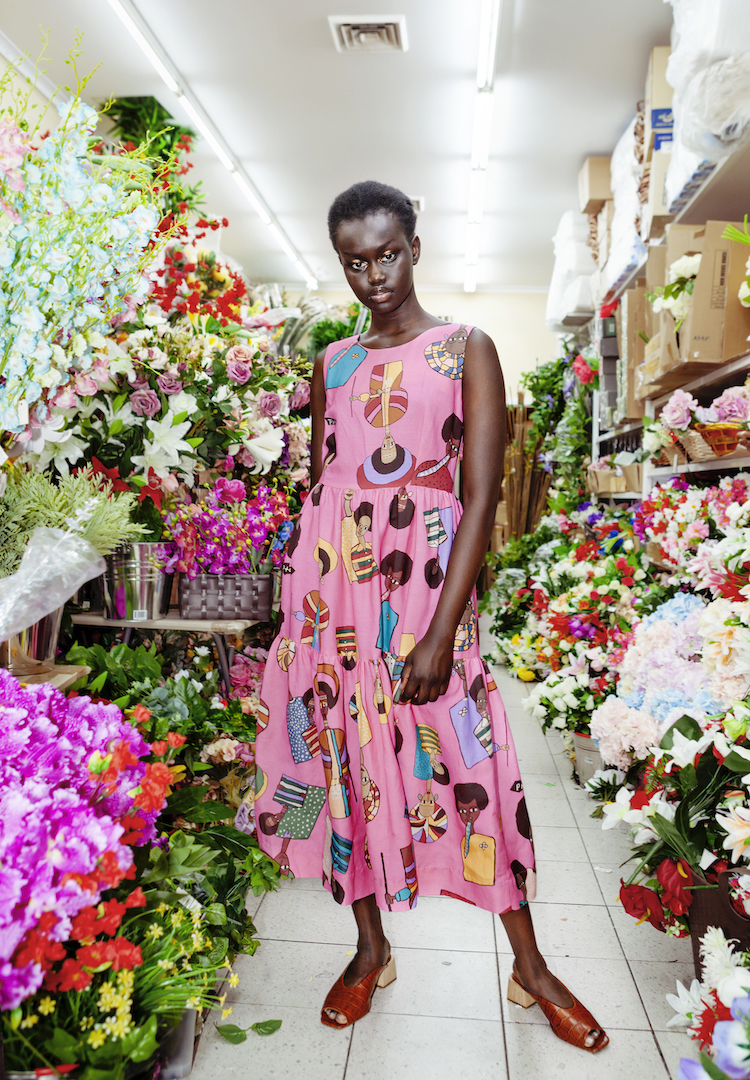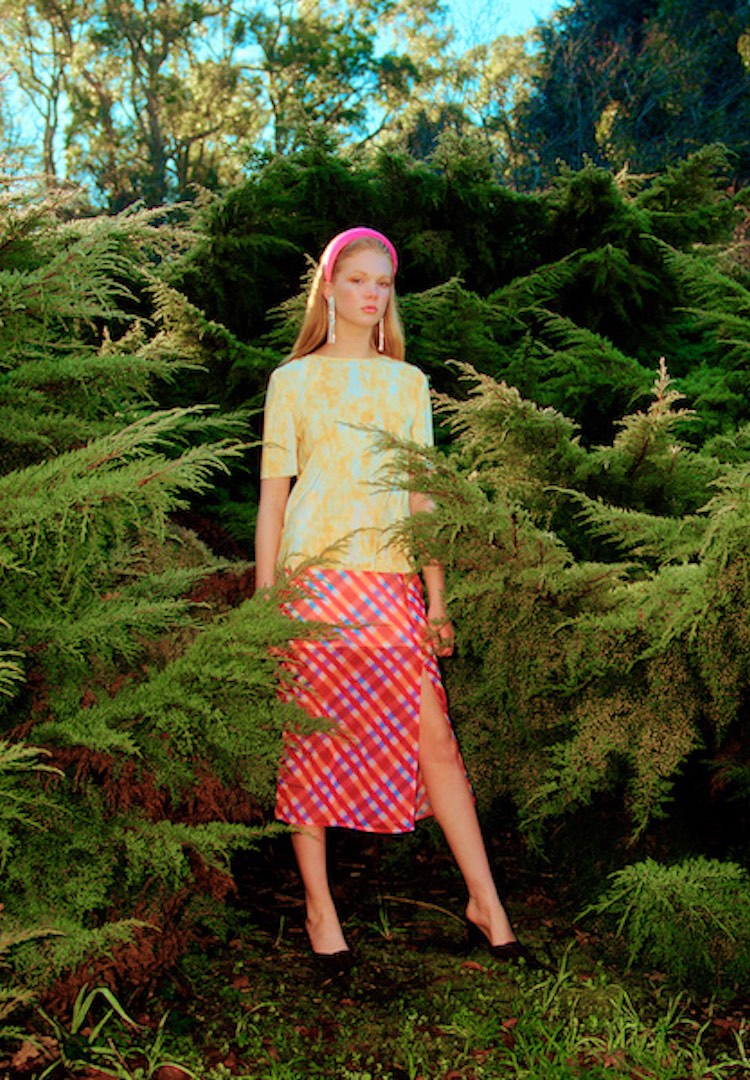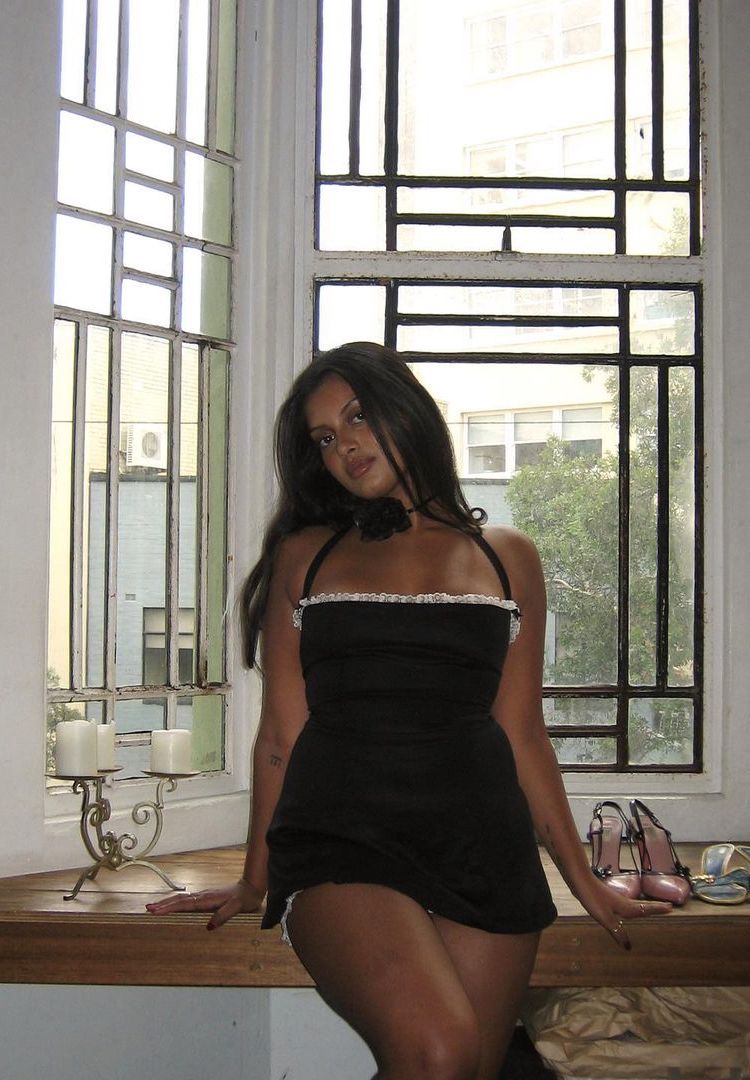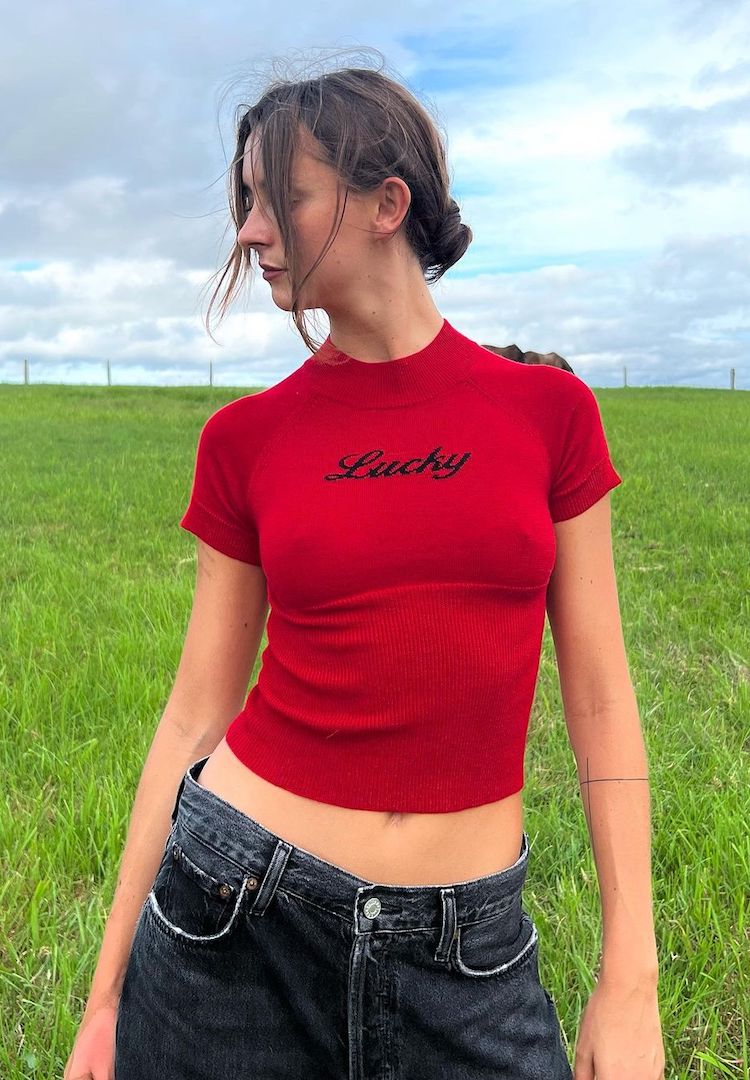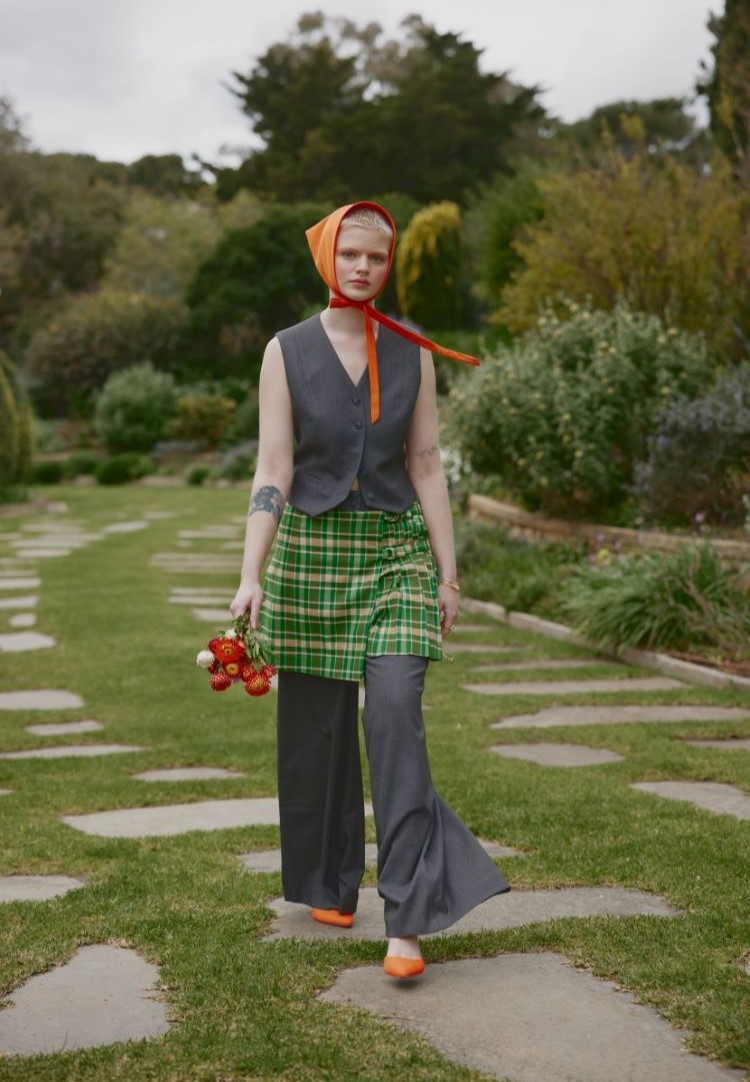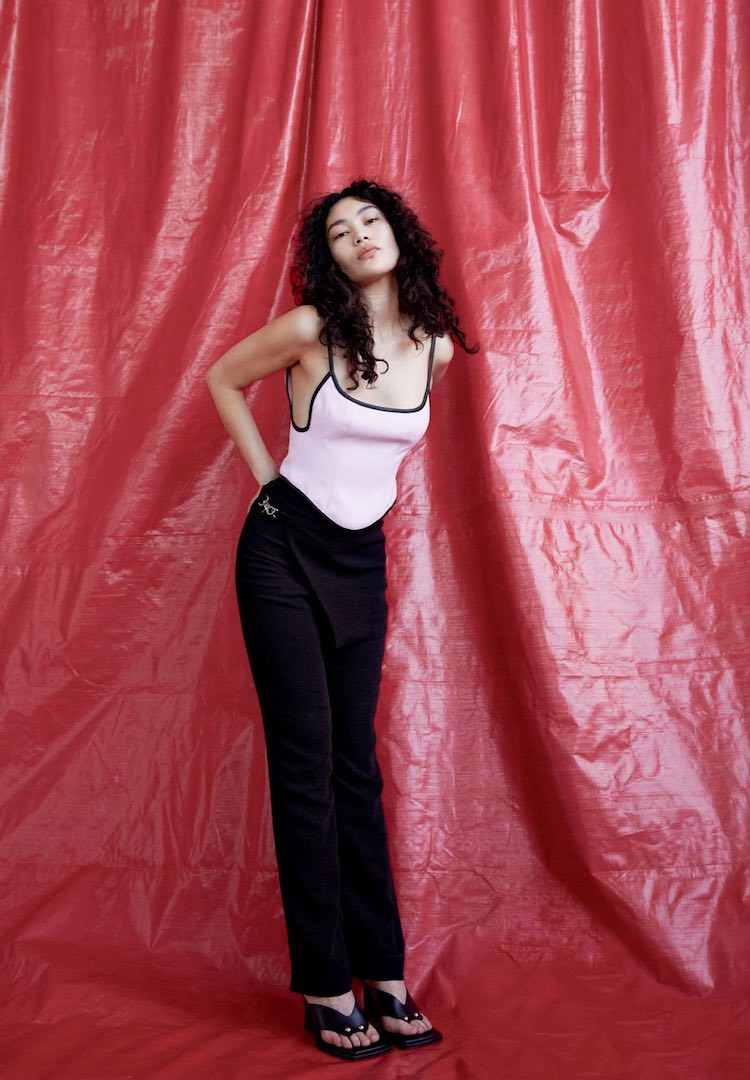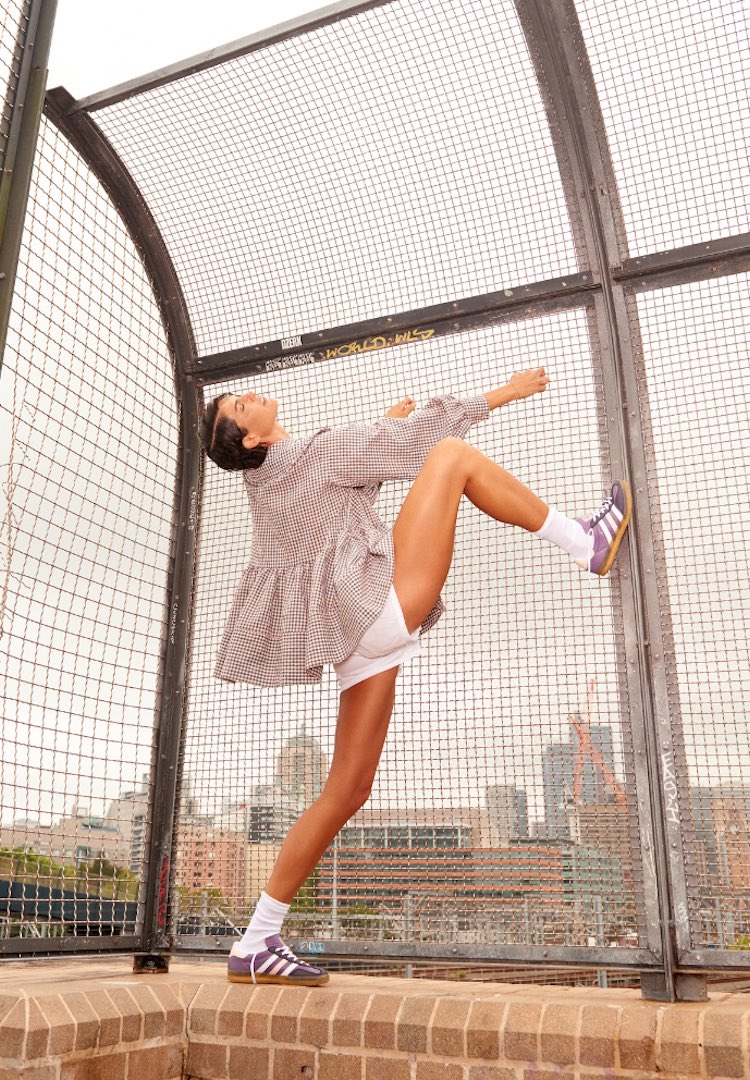How Arnsdorf became a pillar of Australian sustainability
Words by Tess Macallan
The rise and fall and rise again of one of Australia’s most popular sustainable labels.
‘Longevity’ is a word that comes up time and again for Melbourne designer Jade Sarita Arnott. The idea is the bedrock of her label Arnsdorf, which has garnered respect bordering on reverence in the Australian fashion market for its commitment to creating lasting, quality garments.
Jade’s designs are a modern reworking of classic styles, created for women with a purpose who share the label’s values. Sustainability, ethics and transparency are at the forefront.
But it wasn’t always like that.
When Jade began her label in 2006, conversations around sustainability were still in their early stages. While studying Fashion Design at RMIT she took a class on sustainability, which gave her knowledge of more durable materials and the ethics of creating clothes that last. These ideas surfaced in her label in little ways, through natural fabrics and organic cotton.
The original Arnsdorf operated under a traditional business model, with manufacturing spread out overseas. Located in New York with an office in Melbourne, it was difficult for Jade to have control over every part of the business. Meanwhile, she was getting fed up with the never-ending seasonal cycle that meant clothes were marked down after three months, and the resulting wastage that plagued the industry. Stuck inside a constant cycle of production deadlines, there was no time for the designer to question the processes of her label.
“There was this growing sense of unease, I suppose, of the way the industry operated and whether I wanted to still be a part of that.”
At the same time, the high-end stores that stocked her label were struggling, with many failing to pay designers and others shutting their doors entirely. Jade felt like she needed to step back, so she took a few seasons off to reassess and slow things down.
“I still really loved design and that never changed, but it was just the industry that I wasn’t really sure about.”
In 2013, the Rana Plaza tragedy highlighted the need for the fashion industry to change its ways. Although Jade had already dissolved her label, the event had a major impact on her.
“It made me feel ashamed of an industry that I’d been a part of even though I’d never produced in Bangladesh or factories that were like that … but it made me feel like if I was ever going to produce again I’d want total clarity and visibility over the supply chain,” she says.
If she went back to designing clothes, she would do it her own way.
In New York, she worked at a tech startup, inspiring her to think about disruption and the ways she could approach business differently. During her time there, she was also approached by New York label Apiece Apart to work collaboratively on a line. The experience of working as part of a team of women reignited her love of design.
When she returned to Melbourne it felt like the right moment to relaunch Arnsdorf.
Now, the label rejects a traditional fashion model. It centres on a core collection with small, limited-edition seasonal drops. All pieces are produced locally in the label’s Collingwood factory. Arnsdorf has an Ethical Clothing Australia accreditation and a B Corp certification. Jade’s next step is looking at how she can create a closed-loop label.
As the future of the fashion industry looks increasingly uncertain — climate activists are calling its entire existence into question — Jade acknowledges that sustainable fashion designers occupy a contradictory position. The most sustainable decision would be to stop producing clothes altogether.
But she also knows her brand makes a positive contribution. She looks after the employees that work for her label. Her approach is to continually improve upon her pieces, designing for those who want clothes that will last.
“I think there is a place for fashion. I think that if we were all to give up on it completely, just no longer buy anything or buy just really generic items, we would have lost a bit of an art form. And I think as human species we need art and we need design to have a meaningful existence and to have joy in life.”
So Arnsdorf, like the garments it creates, is here to stay.

